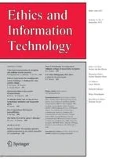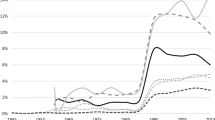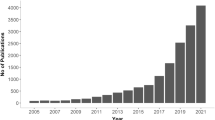Abstract
In discussions on the ethics of surveillance and consequently surveillance policy, the public/private distinction is often implicitly or explicitly invoked as a way to structure the discussion and the arguments. In these discussions, the distinction ‘public’ and ‘private’ is often treated as a uni-dimensional, rigidly dichotomous and absolute, fixed and universal concept, whose meaning could be determined by the objective content of the behavior. Nevertheless, if we take a closer look at the distinction in diverse empirical contexts we find them to be more subtle, diffused and ambiguous than suggested. Thus, the paper argues for the treatment of these distinctions as multi-dimensional, continuous and relative, fluid and situational or contextual, whose meaning lies in how they are interpreted and framed. However, the aim of this paper is not to finally ‘sort things out’. The objective is rather to demonstrate the complexities of the distinction in various contexts and to suggest that those using the distinction, when considering the ethics and politics of surveillance technologies, would benefit from more clearly specifying which dimensions they have in mind and how they relate.
Similar content being viewed by others
References
A. Allen. Uneasy Access: Privacy for Women in a Free Society. Totowa, N.J.: Rowman and Littlefield, 1988.
H. Arendt. The Origins of Totalitarianism. New York: Harvest Books, 1973.
C. Bennett. Regulating Privacy: Data Protection and Public Policy in Europe and the United States. Ithaca, NY: Cornell University Press, 1992.
D. Brin. The Transparent Society. Reading, MA: Perseus Books, 1998.
A. Etzioni. The Limits of Privacy. New York: Basic Books, 1999.
D. Flaherty. Protecting Privacy in Surveillance Societies. Chapel Hill: University of North Carolina Press, 1989.
O. Gandy. The Panoptic Sort. Boulder: Westview Press, 1993.
S. Garfinkel. Database Nation. Sebastopol, CA: O'Reilly, 2000.
J. Habermas. The Structural Transformation of the Public Sphere. Cambridge: M.I.T. Press, 1991.
T. Hall. The Hidden Dimension. New York. Doubleday, 1966.
D. Lyon. The Electronic Eye. Cambridge: The Polity Press, 1994.
G.T. Marx. Undercover: Police Surveillance in America. Berkeley: University of California Press, 1988.
G.T. Marx. Ethics for the New Surveillance. The Information Society, 14: 171–185, 1998.
G.T. Marx. “What' in a Name” Some Reflections on the Sociology of Anonymity. The Information Society, 15(2), 1999.
B. Moore. Privacy: Studies in Social and Cultural History. New York: M.E. Sharpe, 1984.
C. Nippert-Eng. Home and Work: Negotiating Boundaries Through Everyday Life. Chicago: Univ. of Chicago Press, 1997.
H. Nissenbaum. Toward an Approach to Privacy in Public: Challenges to Information Technology. Ethics and Behavior, 7: 207–219, 1997.
C. Regan. Legislating Privacy: Technology, Social Values and Public Policy. Chapel Hill: University of North Carolina Press, 1995.
J. Rosen. The Unwanted Gaze. New York: Random House, 2000.
R.E. Smith. Ben Franklin' Web Site. Providence, RI: Privacy Journal, 2000.
W. Staples. The Culture of Surveillance. New York: St.Martin' Press, 1997.
A. Stinchcombe. Institutions of Privacy in the Determination of Police Administrative Practice. American Journal of Sociology, 69, 1963.
K.L. Schepple. Legal Secrets. Chicago: Univ. of Chicago Press, 1988.
C. Shearing. The Relation Between Public and Private Policing. In M. Tonry and N. Morris, editors, Modern Policing. Chicago: Univ. of Chicago Press, 1992.
D. Shulman. Professionals' Accounts for Work-Related Deceptions. Symbolic Interaction, 23(3), 2000.
Author information
Authors and Affiliations
Rights and permissions
About this article
Cite this article
Marx, G.T. Murky conceptual waters: The public and the private. Ethics and Information Technology 3, 157–169 (2001). https://doi.org/10.1023/A:1012456832336
Published:
Issue Date:
DOI: https://doi.org/10.1023/A:1012456832336




